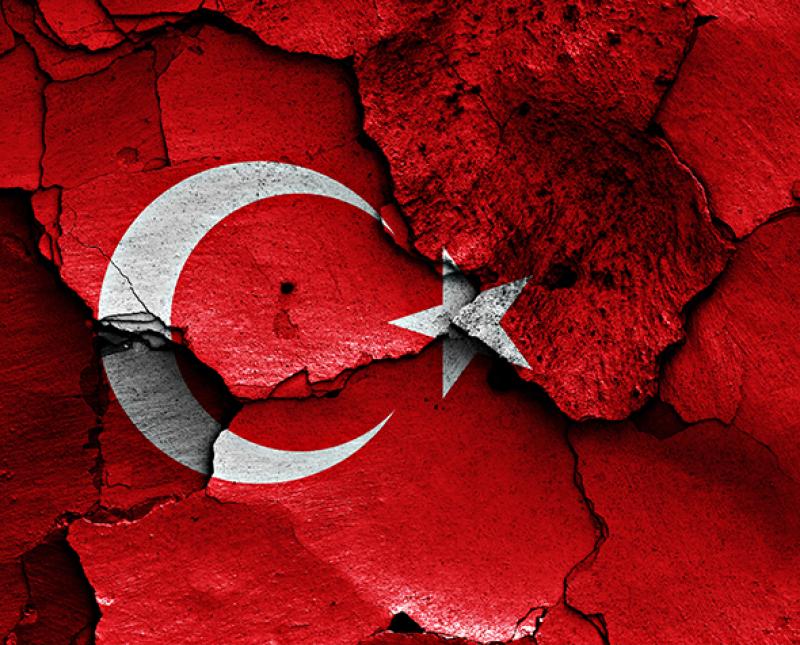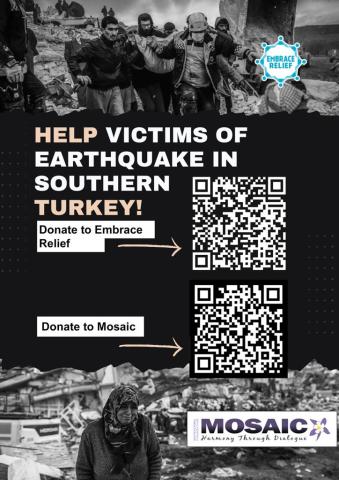Korbel PhD Student Raising Funds After Earthquake in Turkey

In the days following the Feb. 6 earthquake in southern Turkey and northern Syria, the death toll has mounted steadily and dramatically. As of Friday, 23,000 people have been confirmed dead, and that count is expected to rise.
Among those leading the charge to assist international rescue and relief efforts is Sevde Acabay-Oguc, a PhD student and teaching assistant at the Josef Korbel School of International Studies at the Univesity of Denver. She’s from Turkey, with family and friends still living in the country, and she’s channeling her educational and professional expertise to help those in need.
“This is not something distant, something happening to one or two people,” Acabay-Oguc says. “It doesn’t matter the nationality; they just need help, and I really want to help contribute to it how I can.”
Acabay-Oguc is president of the Multicultural Mosaic Foundation—often referred to as Mosaic—a local nonprofit dedicated to helping cultivate moral and cultural values by promoting understanding and dialogue. Mosaic is partnering with Embrace Relief, a New Jersey-based organization that provides aid during humanitarian disasters and strives for research-based, sustainable solutions to problems in places enduring chronic hardship.
As of Friday afternoon, Embrace Relief had raised more than 65% of its $1 million goal to support international relief efforts following the earthquake, which measured 7.8 on the Richter scale.
“We’re utilizing Embrace Reliefs’ network,” Acabay-Oguc says. “We want to take our network and connect it to their network, so we can get money and in-kind donations to help the people over there as quickly as possible.”
In-kind donations are being collected by the Turkish American Cultural Society of Colorado, among other organizations. A full list of drop-off sites can be found here. Acabay-Oguc says that while all donations are welcome, monetary gifts are particularly useful, in part because of the valuation of Turkey’s currency compared to the U.S. dollar. She noted that many reputable charities are raising funds to aid recovery efforts, and donations to them also will benefit the people of her country.
Acabay-Oguc, whose family lives outside the affected area, says that the steadily rising death toll is likely underreported. Many international experts agree, and some project that the final numbers could rise significantly.
The situation is made more dire by the decade-long civil war in Syria, where the government severely limits which international aid organizations can operate within the country. The regime also exacts tight control over the flow of information coming out of the country.
Acabay-Oguc is critical of the Turkish government’s response to the earthquake, noting that she expects that to improve as the country comes to terms with the scale of the tragedy. Nonetheless, she says she is angry that, as public infrastructure crumbled, the government restricted access to certain social media platforms, including Twitter, cutting down on avenues for communication as those in the affected area tried to receive help.
Acabay-Oguc’s relief work grows out of a passion for serving the public good. When she first came to the United States to further her education, she wasn’t sure where she’d fit in. Little things—adjusting to temperatures expressed in Fahrenheit rather than Celsius, for example—left her disoriented. But after she joined some collaborative efforts to help people in need, she felt as though she had found her calling.
“I was working with the Jewish community, making packages for people in need, and when I started doing that, I met a lot of people from all walks of life. When you’re there, it doesn’t matter where you’re from, you’re just trying to do something good. I’m not talking about the gratitude or the altruism. I’m really talking about the belonging. That’s when I decided what I want to do. It doesn’t matter where I live. I just want to be part of that community.”
As a second-year PhD student, Acabay-Oguc focuses on political economy, studying sovereign wealth funds and their political effects within their home countries and on the international level. Her work with Mosaic began when she first arrived in Denver. After volunteering for a year, she became a board member. Now, she’s president of the organization and helps lead events, including an interfaith vigil for the earthquake survivors on Saturday in Aurora.
“A lot of what we study, the world wars, modern conflicts, the heart of that is human suffering,” she says. “Coming from a literary and intellectual background helps me realize what I can do to help with that. We all know that human suffering isn’t going anywhere and the benefit of studying at a place like Korbel is that you feel a sense of duty. You see with the naked eye what is happening and what needs to be done.”



